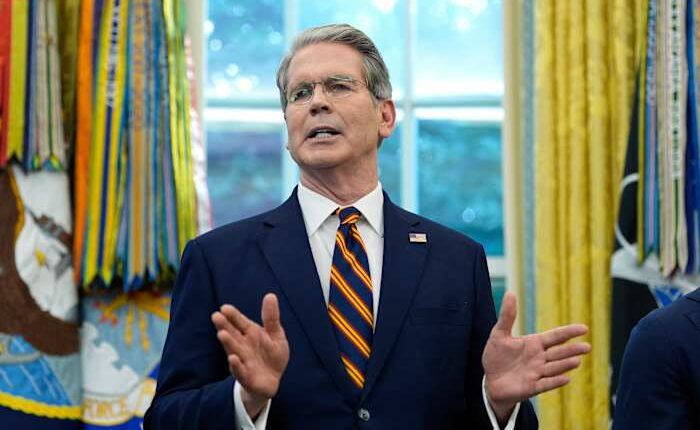Share this @internewscast.com

TAIPEI – Over the weekend, China initiated two investigations focusing on the U.S. semiconductor industry. This move precedes upcoming discussions in Spain between the two countries concerning trade, national security, and issues surrounding social media app TikTok.
The Ministry of Commerce in China unveiled an anti-dumping probe targeting specific analog IC chips imported from the U.S. This effort will scrutinize some interface IC chips and gate driver IC chips frequently produced by American companies, including Texas Instruments and ON Semiconductor.
The ministry separately announced an anti-discrimination probe into U.S. measures against China’s chip sector.
U.S. Treasury Secretary Scott Bessent is set to meet Chinese Vice Premier He Lifeng in Madrid between Sunday and Wednesday, He’s office said.
According to a Chinese commerce ministry representative, U.S. regulations like export limits and tariffs are seen as obstacles and suppression tactics against China’s development in high-tech fields, such as sophisticated computer chips and artificial intelligence.
These investigations in China follow a U.S. announcement made on Friday, which added 23 Chinese companies to a restrictive “entity list” for actions deemed counter to U.S. national security and foreign policy. Included on this list are two Chinese companies accused of procuring chipmaking tools for leading Chinese semiconductor firm SMIC.
Negotiations in Madrid between Bessent and He will continue efforts to ease trade tensions and delay the implementation of increased tariffs on each other’s products.
Prior talks between U.S. and Chinese delegates took place in Geneva in May, London in June, and Stockholm in July. Both governments have agreed to multiple 90-day pauses on escalating reciprocal tariffs, averting a full-scale trade war.
Bessent described the talks during the last round in Stockholm as “very fulsome.”
“We just need to de-risk with certain, strategic industries, whether it’s the rare earths, semiconductors, medicines, and we talked about what we could do together to get into balance within the relationship,” Bessent said at the time.
U.S. President Donald Trump and former President Joe Biden placed curbs on China’s access to advanced semiconductors including restrictions on the sale of chipmaking equipment to the country. While Washington cites national security concerns, China argues the curbs are part of a U.S. strategy to contain its growth.
Copyright 2025 The Associated Press. All rights reserved. This material may not be published, broadcast, rewritten or redistributed without permission.










